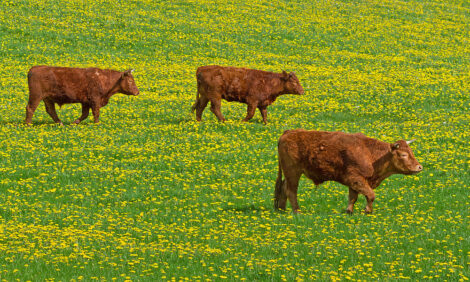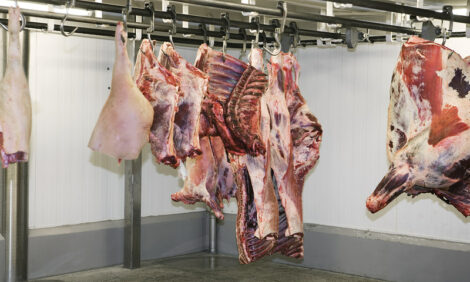



NBA Seek Warmer Outlook on Livestock
UK - The National Beef Association is looking for agreement that new, more friendly, approaches to livestock production can be adopted now that the world has woken up to the risk of imminent food shortages.It is worried that farmers trying to respond by raising output through increased production efficiency will be hampered by an outdated CAP and continued misplaced emphases from governments, and opinion formers, on secondary, non-production, issues such as those found in the recently approved Rural Development Programmes which have had most of the farmer friendly measures removed in favour of environmental or rural community interests.
It also says that among farmers’ biggest concerns are steadfastly rising feed, fuel, and fertiliser costs – which are driven by the same pressures that are creating the widening gap between global food consumption and production.
“No one thinks cattle feed, diesel or fertiliser will ever become cheaper or doubts that well managed increases in agricultural production will become even more important in the months and years to come,” explained NBA director, Kim Haywood.
“But as the organised, and sustainable, production of more food, without jeopardising soil, landscape and water protection, becomes increasingly urgent it is also clear that if farming is to deliver everything the country requires it cannot be burdened with avoidable production costs or unnecessary restraints on its output.”
According to the NBA this means an urgent revision of national, and EU, food production policies is needed and that any over-zealous emphases on non-agricultural activity that were introduced in the 2005 CAP reforms, when food supply security was not an issue, need to be removed from the rule book.
“The Association is not saying that every environmental protection restraint introduced over the last decade should be jettisoned,” said Ms Haywood.
“But is it is saying there has been a massive swing in global attitudes to food since the last big policy decisions were made and there is now a clear need for a thorough review during which re-alignment takes into account new national, and global, priorities.”
“Some micro solutions, like the feeding of more food industry bi-products and less cereal to cattle, or more concentration on grazing to ease back on fuel and fertiliser uptake, will help farmers to cut back on cost.”
“However bigger decisions covering areas of land management that are currently regarded by non-farmers as inviolate will be needed if stocking rates are to find their new optimum.”
TheCattleSite News Desk


